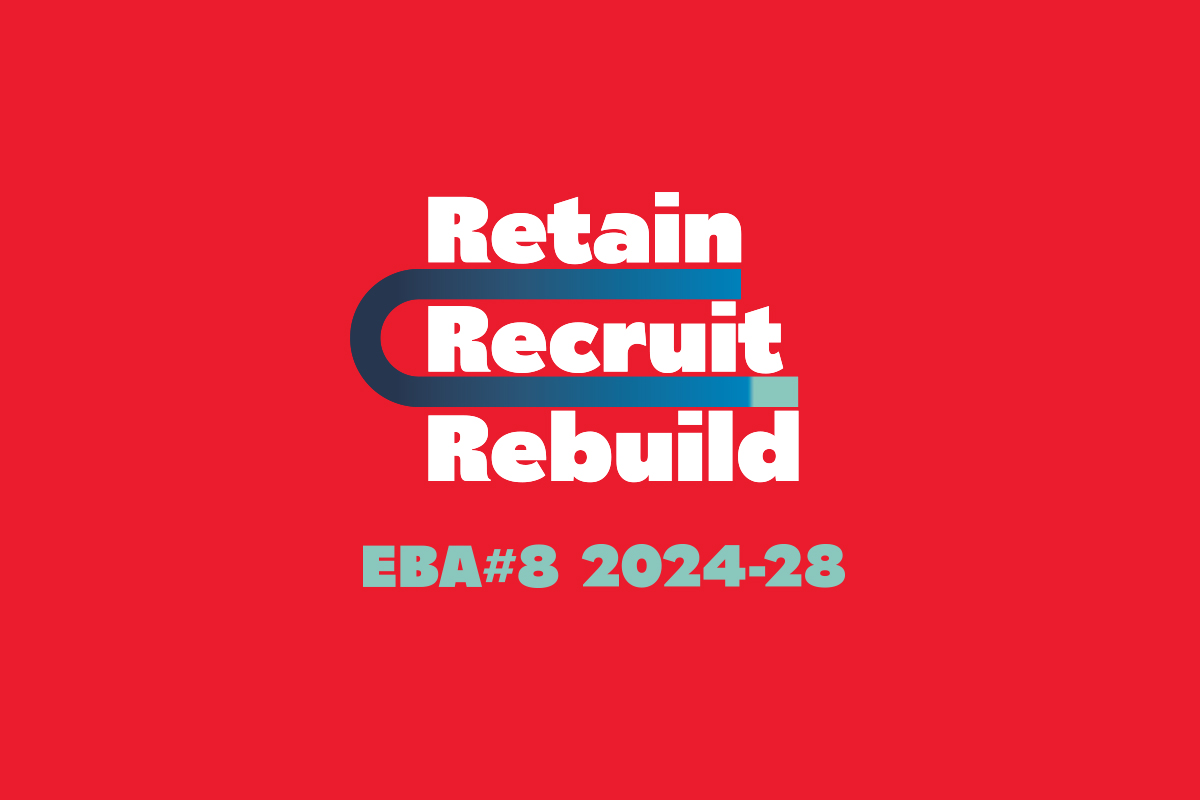
ANMF members employed at Melbourne IVF have unanimously voted to accept a new employer offer for improved wages and conditions just days before the start of a protected industrial action ballot.
The improved offer was made during discussions between ANMF and Melbourne IVF held at the Fair Work Commission which was a requirement of the protected action ballot process.
ANMF has been negotiating a new agreement with Melbourne IVF, on behalf of members, since late August 2023.
Members’ last pay rise was in November 2022.
In late February, members directed ANMF to make a Fair Work Commission application for a protected action ballot in response to Melbourne IVF’s inadequate wages and conditions offer. The ballot was due to start on 25 March.
Melbourne IVF made a further improved in-principle offer on 21 March which includes an industry-leading 14.1 per cent pay increase over a four-year agreement:
- 4.3% effective from the first full pay period on or after (FFPPOA) 1 November 2023
- 3.5% effective FFPPOA 1 November 2024
- 3.3% effective FFPPOA 1 November 2025
- 3% effective FFPPOA 1 November 2026.
The first 4.3% increase will be back paid to FFPPOA 1 November 2023, from the commencement of the new agreement.
Melbourne IVF’s previous wages offer, made in February, comprised four annual increases of 3.5% at the start of the agreement and no back pay, 3%, 2.75% and 2.6%.
Under the in-principle agreement, the employer has also removed its claim to reduce advance roster notice from one month to one week. In a later offer this was increased to two weeks. Under the improved offer members will continue to have rosters a month in advance.
Australian Nursing and Midwifery Federation (Victorian Branch) Secretary Lisa Fitzpatrick said: ‘Melbourne IVF ANMF members have secured improved wages and conditions because of their commitment and courage.
‘Protected industrial action is always a last resort for nurses and in many ways it can be more difficult decision for members in a smaller private healthcare service,” she said.
‘Members sent a strong message to their employer that they would not be taken for granted.’
Other EBA improvements include:
- Allowances to increase in line with wage increases, unless otherwise specific i.e. the scanning allowance increase which will more than double from $9 to $19 a day.
- Paid parental leave will increase from ten weeks to 13 weeks for the primary carer and three weeks from one week for the secondary carer from the commencement of the agreement. Primary carer leave will increase to 14 weeks at the start of the third year of the agreement.
- Superannuation to be paid on all paid parental leave.
- Access to pro-rata long service leave from seven years at the state Long Service Leave Act accrual rate. The long service leave clause will be updated to include improved definitions for continuous service in line with the legislation and improved payment of this entitlement on termination of employment.
- Delegate/Job Representative leave will increase from three days to five days paid per annum (non-cumulative).
- The inclusion of a transition to retirement
- The inclusion of a casual conversion clause that will refer to/align to provisions of the Fair Work Act.
- Rosters to include periods of on-call.
- An express provision that professional development leave will not be used for the employer’s mandatory training.
- The inclusion of a clause that limits the use of fixed-term employment in-line with the Fair Work Act.
- The ability to substitute a public holiday to enable attendance at a NAIDOC event, subject to agreement by the employer and operational requirements.
- Ten days paid family and domestic violence leave in accordance with the National Employment Standards.
- A new overtime clause that better demonstrates how and when overtime is paid i.e. inclusion of tables identifying amount of overtime payable after time worked.
- The introduction of a new Clinical Nurse Consultant Classification to be paid equivalent to an ANUM.
- Changes to the application process for Clinical Nurse classification status removing the requirement for nurses to reapply for their CNS status every year.
ANMF also understands that some of the issues members’ raised in relation to payslips will be addressed as part of overall changes to the payroll system currently underway.
Once the agreement is drafted and agreed by both parties it will go to a ballot of all employees covered by this EBA.

